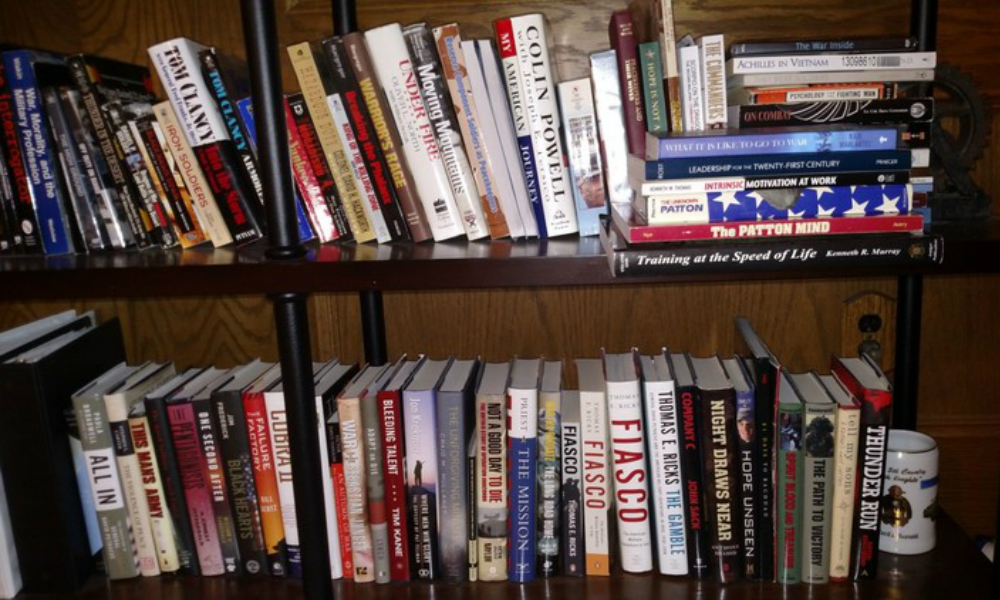Top Five Books
I picked lesser-known, iconoclast books over the oft-repeated standards. My first cut included 21 books so I don’t feel bad at combining some of them. This list is in increasing order of importance.
Kenneth Thomas, Intrinsic Motivation at Work (2002 edition preferred)
Thomas describes motivation and how to build a sense of progress, choice, competence, and meaningfulness within one’s self and within organizations. My dissertation relied upon Thomas’ exemplary work.
Kenneth Murray, Training at the Speed of Life, Vol. 1
Murray builds on works by Dave Grossman, Loren Christensen, Alexis Artwohl, etc. to produce a highly readable book about safe combat training. Murray makes you wonder how law enforcement agencies can out-train the military. This simple book explains how to do it right.
Karl Marlantes, What It Is Like To Go To War
I didn’t care for Marlantes’ fictional Matterhorn, but it should be read before tackling the non-fiction What It Is Like to Go to War. The former informs the latter, which describes the aftermath of war on the psyche and how to better think and prepare before we send our soldiers to battle.
Timothy Challans, Awakening Warrior
Challans critiques US military shortcomings, sparing no one as he vehemently argues for a more moral and philosophical military. This is a necessary, but not entirely enjoyable, read.
Joseph Rost, Leadership for the Twenty-First Century
This revolutionary book forced me to reassess “leadership” as a concept. The end result? I no longer believe in “leaders.” Read the book to understand what kind of crazy I am talking. A hint: Margaret Mead said, “Never underestimate the power of a small group of committed people to change the world. In fact, it is the only thing that ever has.”
The One That Shaped Me Most
Charles Province, The Unknown Patton
On my eighteenth birthday, weeks before I reported to West Point, my father (a retired colonel and USMA graduate) gifted me this book. He’d already underlined passages, dog-eared pages, and inscribed the title page. His note charged me to absorb the hard-earned lessons therein and always love my soldiers. My father is deceased, but I treasure the book and his words. There are better Patton biographies, but Province adequately consolidates essential and obscure stories—and nearly every Patton quote or poetry piece. I pair it with Roger Nye’s The Patton Mind. Nye’s excellent book explores the self-education of Patton, who overcame dyslexia, read voraciously from his own vast military library, and filled books with marginalia. Patton fulfilled his declaration, “By perseverance, study and eternal desire, any man can become great.” Regular readers of the War Books series, who read for self-improvement, should aspire likewise.


